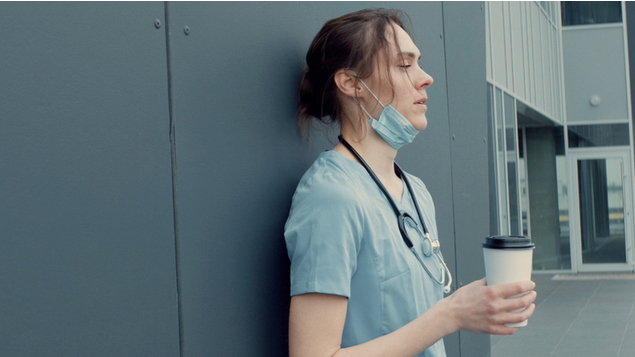Play all audios:
THE PROPORTION OF NHS STAFF FEELING UNWELL AS A RESULT OF WORK-RELATED STRESS CONTINUED TO RISE LAST YEAR, PARTICULARLY IN ACUTE CARE. Forty-four per cent of respondents to the 2020 NHS
staff survey felt unwell because of work-related stress, compared with 40.3% who said the same in 2019. In 2016, the figure was 36.8%. Increases in stress levels were sharpest in acute
community trusts and acute specialist trusts as patient numbers rose during the Covid-19 pandemic. Some 46.4% had worked while feeling unwell at some point in the three months preceding the
survey. This is notably fewer than in previous years (56.6% in 2019), suggesting that many soldiered on in what was a challenging year for the health service. There was also a slight
increase in the proportion of employees experiencing musculoskeletal problems as a result of their work. In 2020 these were faced by 29.3% of staff, up from 28% in 2019 and 25.2% in 2016.
Commenting on the findings, Dr Rob Harwood, chair of the British Medical Association’s consultants committee, said: “These findings underline the intense pressure NHS staff have been under
this last year, and the severe impact that this has had on their health and wellbeing. “As vast swathes of the country stayed at home, healthcare workers continued to go to work. Not only
were many coming face-to-face with a deadly virus, often without adequate protection, but a large proportion were working in unfamiliar environments as they agreed to be redeployed to other
roles so as to better respond to the pandemic.” Harwood said NHS staff “have dealt with death and illness on a scale the NHS was completely unprepared for”, which often included their own
friends and colleagues. “Given this backdrop, and with more than half of staff telling today’s survey that they’re working extra hours unpaid on a weekly basis, it’s no surprise that one in
five respondents say they are planning on leaving the NHS entirely,” he said. “Rather than placing further expectation and demand on an already exhausted and burnt out workforce, the
government must be forthcoming with the additional resource and support – including a fair pay deal – to ensure staff can manage, and take the rest and breaks they need and are entitled to.”
Despite the pressures, the survey’s health and wellbeing “theme score” rose to 6.1 from 5.9 in 2018/19 and 6.0 in 2016/17. A third (33.4%) said their trust definitely takes positive action
on health and wellbeing, up from 29.3% in 2019, and 57% were satisfied with opportunities for flexible working (54% in 2019). SIGN UP TO OUR WEEKLY ROUND-UP OF HR NEWS AND GUIDANCE Receive
the Personnel Today Direct e-newsletter every Wednesday Eight in 10 felt safe at work, although this was lower among staff with long-term health conditions (72.4%) and ethnic minority
workers (78.8%). Some 595,270 staff spanning 280 NHS organisations took part in the survey. It ran between September and December 2020.

